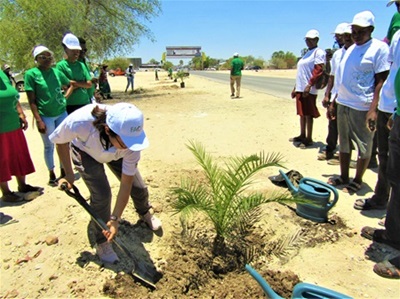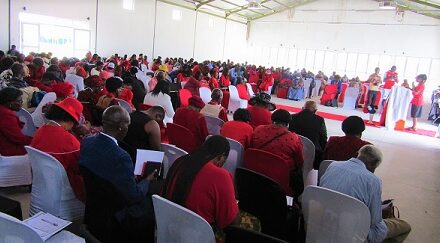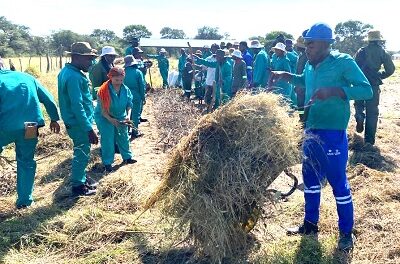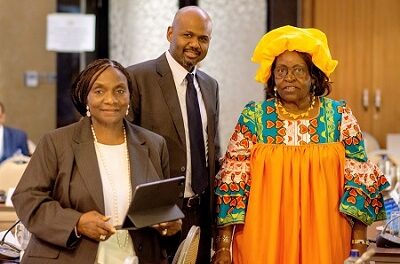By Victor Angula /
EENHANA – The town of Eenhana has embarked on a transformative journey as it becomes part of the Green Cities Initiative (GCI).
The initiative which is being implemented by the Food and Agricultural Organisation of the United Nations (FAO), in collaboration with the Ministry of Environment, Forestry and Tourism (MEFT), aims at making Eenhana one of 1000 cities of the world which by the year 2030 will have “integrated green oases and food systems”.
Eenhana is the first Namibian town to benefit from this project which is funded with a total of N$1,1 million.
FAO Country Representative Dr Qingyun Diao said that the Green Urban Oases Programme, focusing on Eenhana town in the Ohangwena region, “seeks to unlock the potential of multifunctional green infrastructure, contributing to the resilience, health and well-being of urban communities.”
Dr Diao, who was speaking today at the official start of the project’s implementation at Eenhana, stated that the project aims at creating impactful outcomes, “including exposure to nature, preservation of urban biodiversity, mitigation of extreme weather impacts, improved urban living quality, enhanced food security and nutrition, and the promotion of environmental conditions and active lifestyles.”
Speaking at the same occasion, Eenhana Mayor Mr Omri-Onn Kavandje said that the project will benefit the town and its residents.
“This Green Cities Initiative is going to plant more trees in our town which have been affected not only by climate change but also by our developmental activities, and by animals roaming around in our town.
“I wish that headmen of nearby villages are here so that they can share the message with their residents.”
Mr Johnson Ndokosho, the Director of Forestry in the Ministry of Environment, Forestry and Tourism said that the Green City Initiative was first taken to the City of Windhoek for implementation.
“It was in the year 2020, at the time of Covid-19, and the City of Windhoek was slow to respond,” Ndokosho stated.
“We then took the idea to Eenhana, and the leadership of Eenhana was quick to respond.
“This is the first initiative of this nature we are implementing at Eenhana. If successful we can go back to FAO and ask to implement the same project in Okongo, Ondangwa, Oshakati, and other towns.”
The project donated 900 fruit trees and 400 non-fruit tree seedlings, as well as a solar panel to pump water for the nursery garden at Eenhana.
In the photo: FAO Country Representative Dr Qingyun Diao planting a phoenix palm tree at Eenhana.







